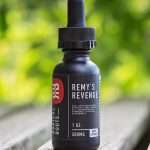Small Intestinal Bacterial Overgrowth (SIBO) is a condition that affects the small intestine, leading to an overgrowth of bacteria. It can cause a range of uncomfortable symptoms and disrupt daily life.
However, by understanding the causes, recognizing the symptoms, and exploring natural remedies, you can take control of your health and find empowerment on your journey to managing SIBO.
Understanding SIBO:
SIBO occurs when there is an imbalance in the bacterial population in the small intestine. Normally, the small intestine contains fewer bacteria than the large intestine. However, various factors can contribute to the overgrowth of bacteria in the small intestine, such as:
- Impaired motility: When the muscles of the small intestine don’t function properly, it can lead to stagnant movement of food, allowing bacteria to proliferate.
- Structural abnormalities: Conditions like intestinal strictures or adhesions can create pockets where bacteria can accumulate.
- Digestive disorders: Underlying conditions like irritable bowel syndrome (IBS), celiac disease, or inflammatory bowel disease (IBD) can increase the risk of developing SIBO.
- Weakened immune system: Immune system dysfunction can impair the body’s ability to keep bacterial populations in check.
Recognizing SIBO Symptoms:
SIBO symptoms can vary from person to person, but some common signs include:
- Bloating and distension: The overgrowth of bacteria can lead to excess gas production, causing bloating and visible abdominal distension.
- Abdominal pain and discomfort: Cramping or generalized abdominal discomfort may occur, often relieved by bowel movements.
- Diarrhea or constipation: SIBO can disrupt normal bowel movements, resulting in either frequent loose stools or constipation.
- Nutritional deficiencies: The overgrown bacteria can interfere with nutrient absorption, leading to deficiencies in vitamins and minerals.
- Fatigue and malaise: SIBO can impact overall energy levels and contribute to a sense of fatigue or general malaise.
Remy’s Revenge Tincture
Dynamic support for the brain and the body. This powerful formula can help settle dis-harmonies in the body that present as “wind disorders.”
Natural Remedies for SIBO:
While working with a healthcare professional is essential for an accurate diagnosis and tailored treatment plan, incorporating natural remedies may complement your SIBO management. Here are some herbs and supplements that have shown promise in addressing SIBO:
- Herbal antimicrobials: Certain herbs, such as oregano oil, berberine, neem, and garlic, possess antimicrobial properties and can help reduce bacterial overgrowth in the small intestine.
- Digestive enzymes: Supplementing with digestive enzymes can aid in breaking down food and enhance digestion, reducing the food source available for bacterial growth.
- Probiotics: Selecting the right probiotic strains, such as Lactobacillus and Bifidobacterium species, can support gut health and rebalance the bacterial ecosystem.
- Gut-supportive nutrients: Nutrients like zinc, vitamin D, and omega-3 fatty acids play crucial roles in supporting the immune system and reducing inflammation in the gut.
- CBD: a high-quality hemp product that can help with intestinal motility, and inflammation and increase beneficial gut bacteria. Check out my (first-ever) podcast interview on SIBO here.
Remember, it’s crucial to work with a knowledgeable healthcare practitioner to determine the right approach and dosage for your specific needs. They can guide you in selecting the appropriate herbs and supplements based on your symptoms, medical history, and overall health.
Conclusion:
Living with SIBO can be challenging, but by educating yourself, recognizing the symptoms, and exploring natural remedies, you can take control of your health and find empowerment on your journey to managing SIBO. Remember to seek guidance from a healthcare professional, as they can provide personalized recommendations and monitor your progress.
By adopting a holistic approach and addressing the root causes of SIBO, you can regain balance in your gut and experience improved well-being. Embrace the power within you to make informed choices and create a path toward long-term gut health and vitality.
Disclaimer: This blog is for informational purposes only and should not replace professional medical advice. Always consult a healthcare professional before making any changes to your diet, lifestyle, or treatment plan.





